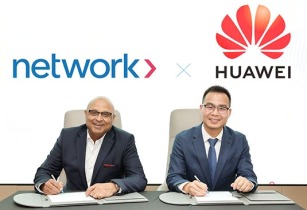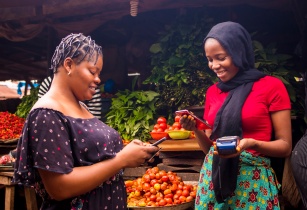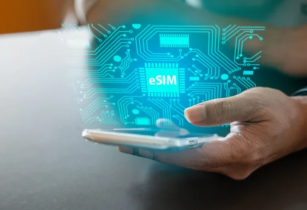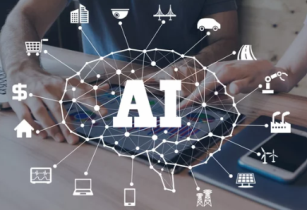Asked at ITU Telecom World 2013 what one single technology or development will bring the greatest change, ministers, regulators and industry leaders answered almost with one voice: mobile, writes Blaise Judja-Sato, executive manager, ITU Telecom
"It's got to be the smartphone," said Omobola Johnson, Nigeria's minister for information and communication technology. "That's because as the price gets cheaper and cheaper, more people have access, and you can do anything you imagine with it, education, health, anything."
In the words of Jon Frederik Baksaas, CEO of leading international operator Telenor: "The smartphone has provided a lot of change in the last years. Now it is about to reach its full potential, throwing it out to the huge number of people still not connected."
And for Saf Yeboah-Amankwah, senior partner at McKinsey and Company, the answer is equally clear: "The fifty dollar smartphone whose battery can last almost a week without recharging. This will make the internet affordable to the 250mn people in Africa who live in rural areas but don't have access to electricity."
Mobile is, of course, particularly suited to connecting the unconnected in emerging markets where often remote and rural areas remain all but unreachable for meaningful fixed line deployment. The distances are too great, the geographies too extreme, the potential customer base too unpromising from an ARPU point of view.
Mobile telephony has already proved the great facilitating technology in many such areas, bringing real change, creating economic ecosystems on a very local scale, enabling emerging markets to leapfrog developmental stages.
Tales abounded at ITU Telecom World of villages where mobile telephony arrived long before electricity (or where the grid has still not arrived); of how more citizens worldwide have access to a mobile phone than to a toothbrush; of how for many people, popular social media sites such as Facebook not only represent, but are, the Internet.
Access to the Internet and its applications, services and products is, after all, what broadband is all about. As consumer demand has shifted radically over the past decade from voice to data services, so has the preference for mobile rather than fixed delivery - and all around the world, across developed and developing nations alike. The vast majority of broadband devices globally are now mobile.
And it's a trend that will continue, with huge potential impact on emerging markets in particular: "Of all the broadband devices in the world, in five years time the vast majority will be mobile and will be used in low-income countries rather than high-income countries," according to David Lewin, director of Plum Consulting. So mobile broadband is clearly where the future is - and a huge opportunity for individual consumers, companies, markets and nations throughout Africa and the emerging world. But there is considerable uncertainty as to which direction mobile broadband will take. Its growth is explosive and unpredictable, shaped by the swift turnover in new apps, devices, content and market players. Mobile cloud networks and the fusion of mobile and Internet herald further disruption. New business models, new markets, new value chains - the whole mobile broadband ecosystem is in flux.
Uncertainty and challenges, for sure, but above all else, the mobile broadband revolution brings unprecedented opportunities to level the playing field and drive social and economic development. In mobile content, for example, the barrier to entry is low in terms of capital expenditure, and the impact potentially enormous.
The key is keeping it local. Meeting the needs of local markets is paramount. This means locally-relevant devices, content and apps, matching local consumer spending power (such as through prepaid SIM cards or shared use models) and providing niche broadband products firmly based in the context of local communities. Social media and public sector services are the central building blocks of mobile broadband, but it's local content that will truly drive demand.
There is no universally agreed definition of broadband: it is a complex mix of technologies, devices, infrastructure and speed that is increasingly seen as a critical national utility. In order to move as far as possible towards universal deployment, broadband needs to be differentiated to reflect the local context, perhaps at lower speeds, with lower cost technologies or with an holistic mix of satellite, Wi-Fi, mobile and fixed networks. In the longer term, mobile and fixed broadband will need to work together to guarantee customer experience, offloading on to fixed or Wi-Fi networks.
However local broadband is delivered, government involvement in some form of public private partnership is vital. Governments need to bring money and determination, resolve the energy divide, stimulate demand, facilitate international investment and connectivity. It's a long shopping list, and one we will discuss in depth with international experts from across the ICT ecosystem at ITU Telecom World 2014 in Doha this December.
Mobile broadband is the future. Keeping it local is the key to growth, to the leapfrog effect, to fast-forwarded development. It's the single greatest opportunity for this generation.



































